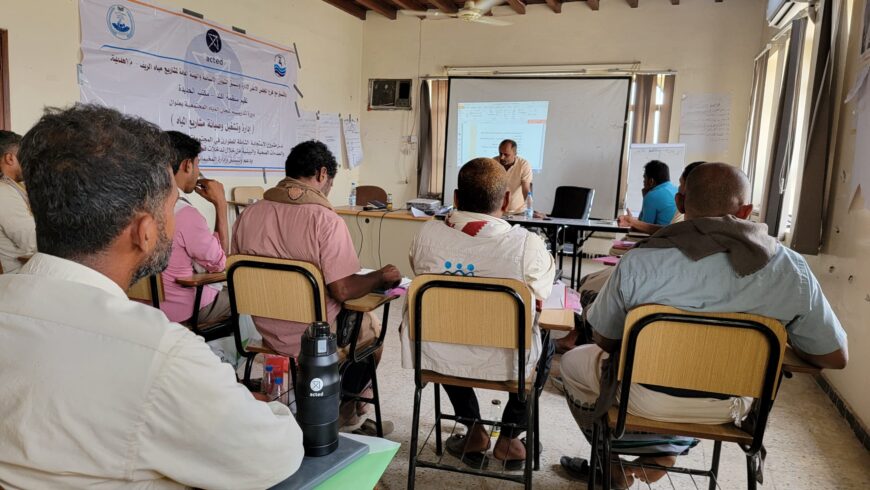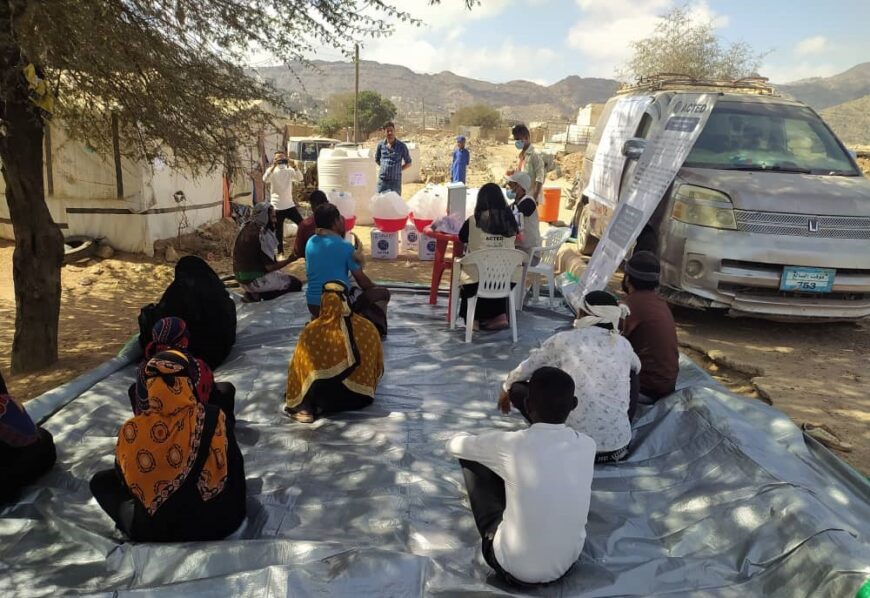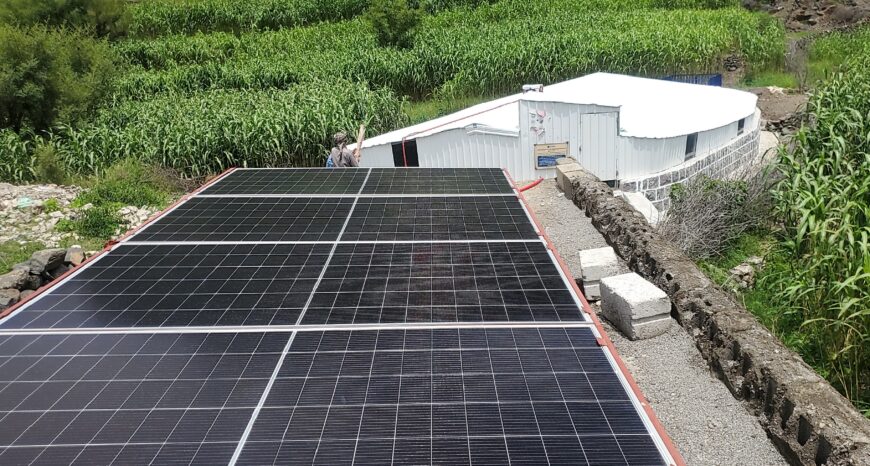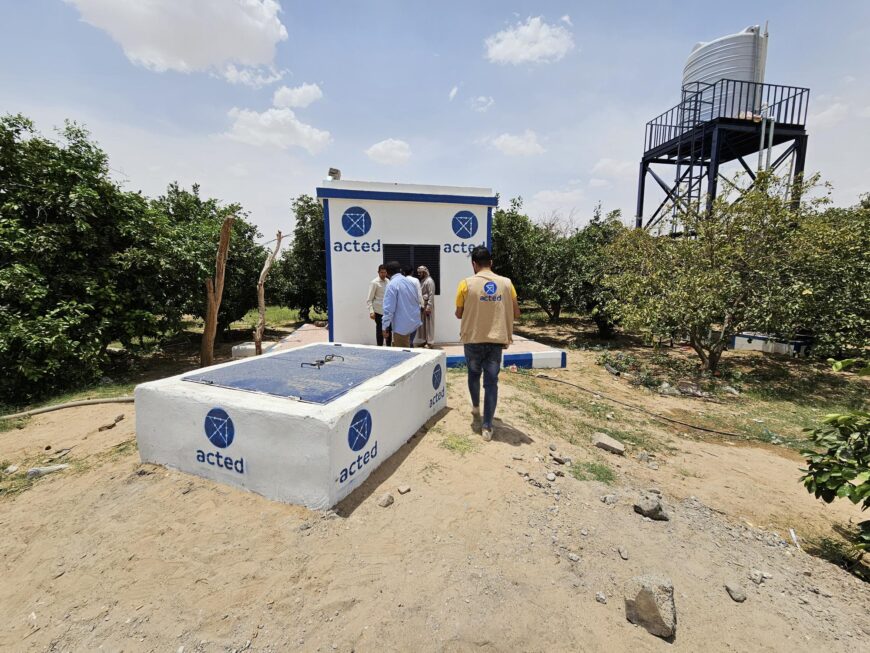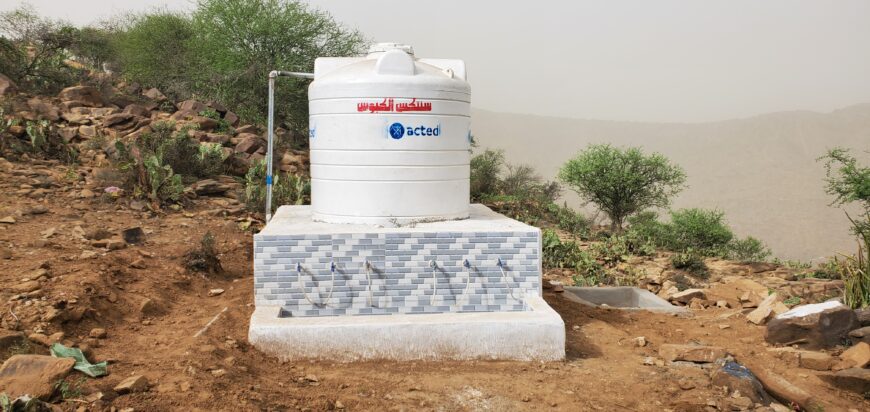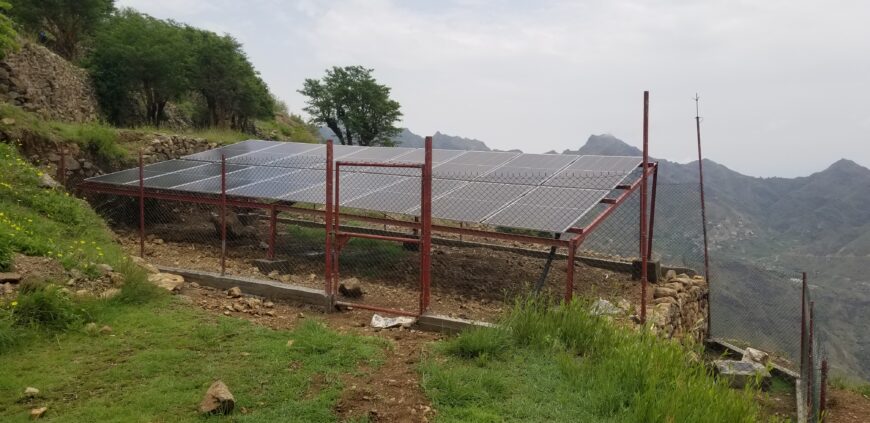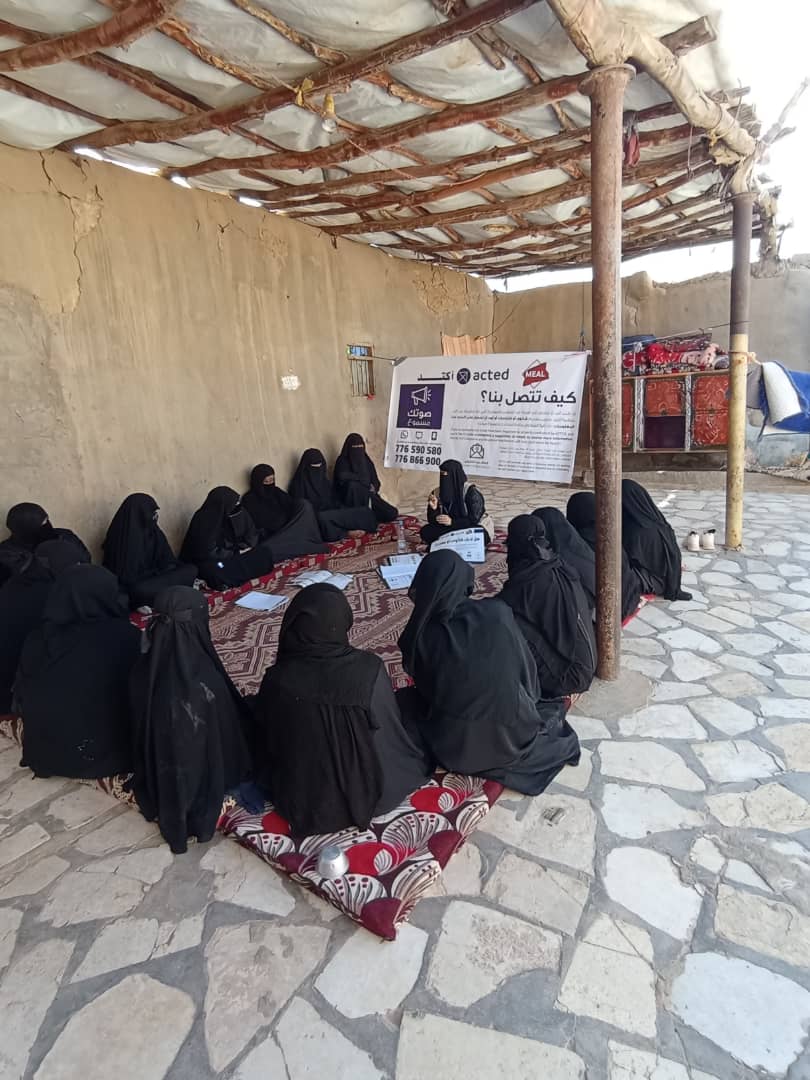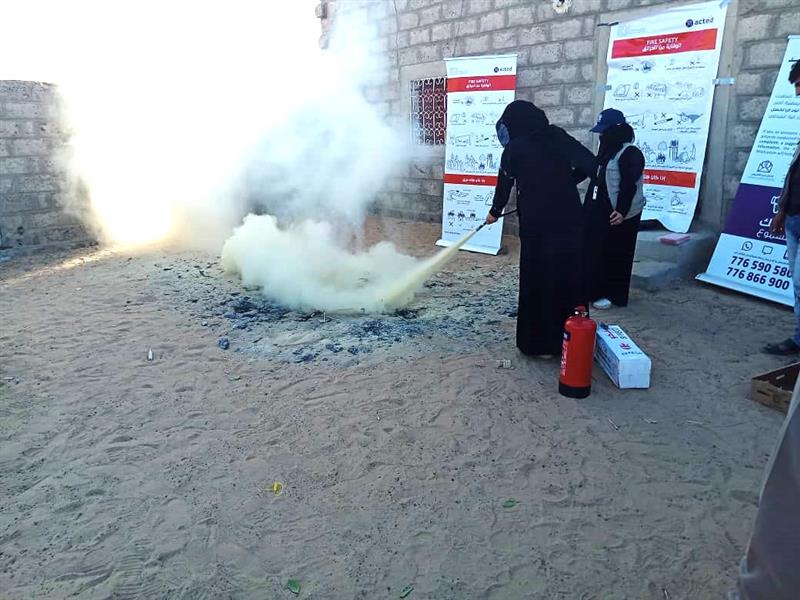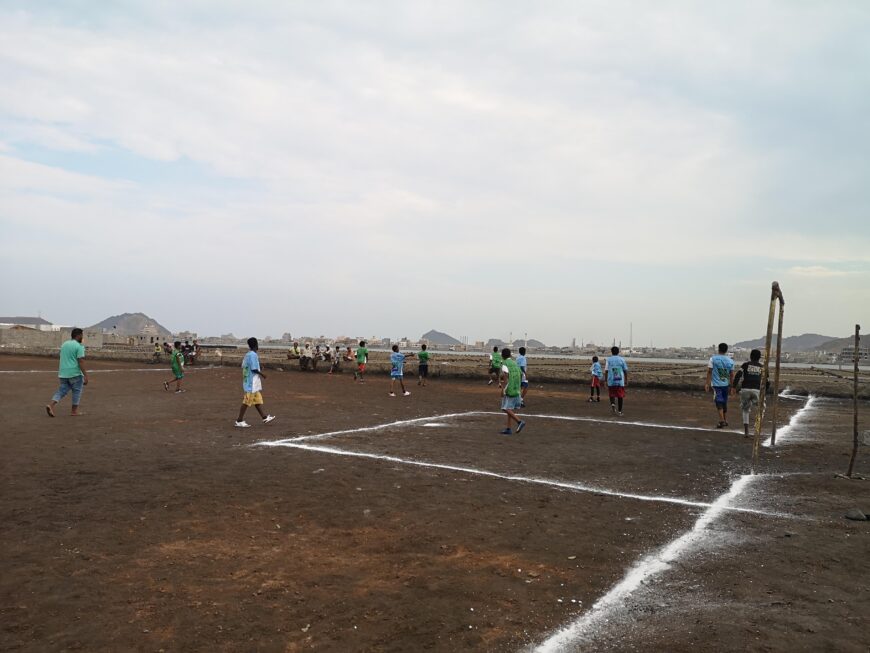Yemen continues to remain one of the world's worst humanitarian crises, with more than seven years of armed conflict. It is estimated that 18.3 million people are in need of some form of humanitarian assistance or protection. The humanitarian crisis, primarily driven by continued conflict and an economic collapse, heavy rains and flooding, has been exacerbated by critical funding gaps, global inflation and access challenges. The knock-on effects of the war in Ukraine, which have worsened global food shortages, have impacted many households in Yemen as prices have increased thus increasing households’ vulnerability.
With high rates of displacement and destruction of homes and infrastructure, shelter needs remain high across the population in Yemen. 6.7 million people are in need of shelter and Non-Food Items (NFIs) support. About 2.7 million people live in catastrophic and extreme shelter conditions, while 1.3 million people need sustainable shelter solutions. 59% of the host community households live in poor shelter conditions.
The protracted situation, climate crises, economic hardship, limited access to basic services, increased cost of living, and loss of jobs and livelihoods exacerbated their vulnerabilities and financial capacity to address shelter needs.Yemen is also one of the world’s most water-stressed countries, with 17.4 million people in need of Water, Sanitation and Hygiene (WASH) assistance as a result of damage to infrastructure, displacements, mismanagement of resources and climate change. 12.4 million people face challenges to accessing a water source of a sufficient quality to prevent diseases, and 20.4 million do not have access to a sufficient quantity of water to cover basic daily needs, including drinking, bathing and cooking.
Displaced people living in informal settlements face particular challenges accessing safe water and sanitation facilities, and high rates of displacement have also put pressure on services accessed by host communities. The lack of access to adequate WASH services is also evidenced in sanitation and health conditions across Yemen.
Through a 14-month intervention, Acted provided a multisectoral assistance to 158,585 conflict-affected individuals (24,966 households; 77,707 female and 80,878 male) across both South and North of Yemen to address their most acute WASH, Shelter and NFI needs, while also supporting locally driven self-reliance and resilience efforts at households and community levels.
Enhanced shelter and NFI support for vulnerable IDPs in Yemen
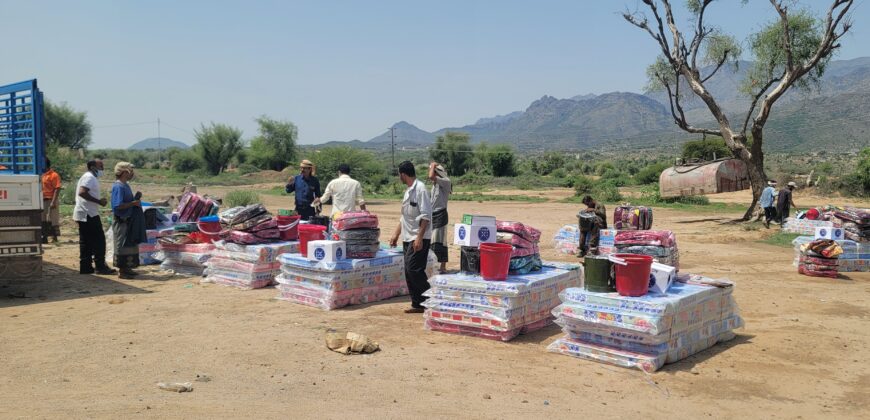
Acted provided essential shelter support to address urgent needs across Al Dhalee, Marib, Hudaydah, Raymah, and Dhamar governorates. The majority of these sites are comprised of temporary or makeshift shelters that are highly vulnerable to adverse weather conditions. To address these vulnerabilities, Acted distributed 1,218 Transitional Shelter Kits (TSKs) across all the governorates. These TSKs responded to both the lack of adequate shelter and the needs of damaged shelters, challenges that are exacerbated by limited-service provision, harsh weather, and new arrivals at the sites. Two shelter designs were implemented for this project: one adapted for cold weather, suitable for IDPs in Dhamar and Raymah, and another for hot weather, designed for IDPs in Hudaydah.
Additionally, recognizing high needs for NFIs due to adverse weather and new arrivals, Acted distributed 1,816 NFI kits. These kits addressed needs arising from natural hazards like flooding, high winds, and strong sunlight, which frequently damage shelters and NFIs on the sites. In response to the diverse and individual needs of households, Acted introduced a Wishlist approach in Al Dhalee, Marib, and Dhamar governorates. Households were provided with a list of items from which they could select items up to a maximum value of 300 USD. Out of 1,816 households, 416 households across these governorates benefited from the Wishlist approach, choosing items that best suited their needs and allowing for more tailored assistance.
Finally, given the significant increase in new arrivals over the past year and the limited presence of shelter actors at the sites, there remains substantial gaps in meeting minimum shelter standards. In response, Acted distributed 220 Enhanced Emergency Shelter Kits (EESKs) in Al Dhalee to help meet the immediate shelter needs of vulnerable households.
Improved water access and sanitation for vulnerable IDPs in Yemen
Acted implemented sustainable WASH solutions, rehabilitating 15 WASH assets and 8 communal rainwater harvesting tanks ultimately improving access to clean water and reducing waterborne disease incidence. Acted also established Water Maintenance Committees (WMCs) to further strengthen the sustainability of Acted’s WASH intervention. These committees are in charge of maintaining the WASH infrastructures, advocating for community needs, participating in water quality monitoring, and ensuring the safe operation of the systems.
Additionally, in response to the shortage of sanitation facilities, Acted constructed and/or rehabilitated 1,269 latrines across Al Dhalee, Marib, Hudaydah, Dhamar, and Raymah governorates, identifying suitable locations for the gender-segregated latrines. To complement the WASH intervention, Acted conducted desludging activities in Al Dhalee and distributed 4,000 Hygiene Kits (HKs) across Al Dhalee and Marib, alongside Hygiene Promotion (HP) sessions.
Comprehensive CCCM Services and Safety Support for IDPs in Yemen
Lastly, Acted provided comprehensive Camp Coordination and Camp Management (CCCM) services across 96 IDP sites (30 sites in Aden, 36 sites in Al Dhalee and 30 sites in Marib).
Acted has been the Area-Based Coordinator for the Sub National CCCM clusters in Aden and Al Dhalee since January 2020 and is an active member of the equivalent cluster in Marib. This role has enabled Acted to lead the CCCM response, facilitating monthly coordination meetings with humanitarian partners and local authorities to identify site needs, address service gaps, and enhance coordination.
To strengthen local capacity, Acted conducted training sessions for ExU (Executive Unit) and Community Committees (CCs) and implemented social cohesion activities to foster positive relationships between host communities and IDPs. To mitigate safety risks, Acted distributed 560 fire safety kits, 320 first aid kits for in-site assistance aimed at supporting minor injuries, and 1,008 rain kits to sites vulnerable to flooding to protect food and NFIs. In addition, Acted implemented Community-Based Projects (CBPs) to encourage community participation and improve residents’ well-being, developed in consultation with diverse, vulnerable groups through Focus Group Discussions (FGDs). Site care and maintenance work was also conducted to ensure safe conditions, with a focus on accessibility for children and people with disabilities, while also addressing hazards and risks within the sites.
Through this proposed intervention Acted addressed the life-threatening challenges communities in Yemen face from shocks related to displacements, diseases, and natural disasters. Acted supported both IDPs and host communities with emergency support whilst also seeking to increase community resilience and strengthen their ability to better respond to future shocks.
